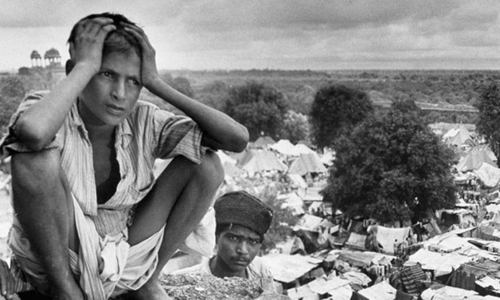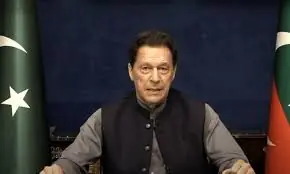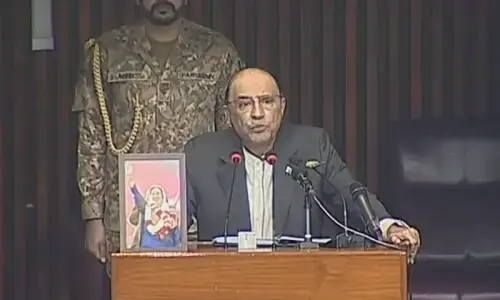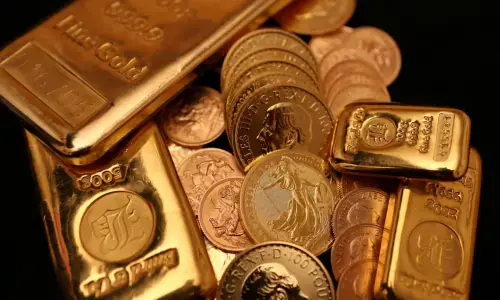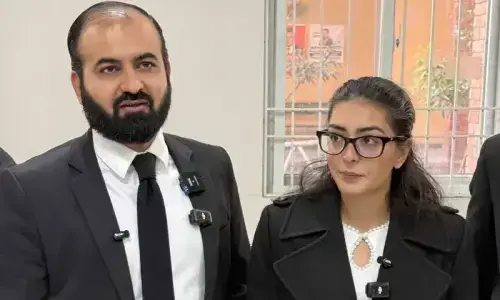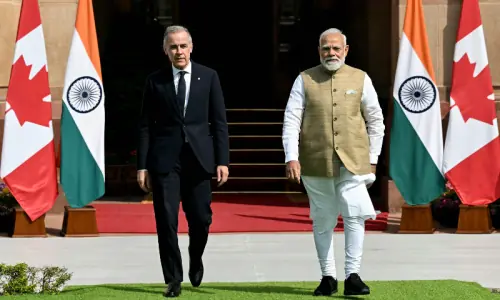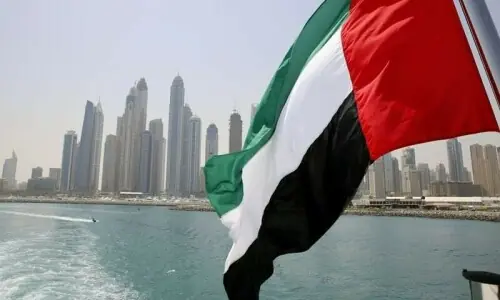
I WAS three years old when our family came to Karachi from Delhi at Partition, 70 years ago.
While I have no memory of the journey, I learned later that our train had been attacked on the way, and we had been saved only by the presence and courage of the handful of soldiers who escorted us. Hundreds of thousands who fled the madness on both sides of the new border had been less fortunate.
Years later, I asked my late father — a well-known writer and Sanskrit scholar in undivided India — why he had taken the decision to migrate to the new state. “Well,” he replied. “My Hindu and Sikh friends said they were not sure they could protect us at the height of the rioting. Also, I thought there would be more opportunities for you children in Pakistan.”
So what have we gained from Partition?
Since then, I have often wondered how life would have turned out had he decided to stay. Until a couple of decades or so ago, it was less clear he had made the right choice. This was when India still seemed to be following the secular path charted by its founding fathers, a path abandoned long ago by Pakistan.
However, as the extreme Hindu nationalist philosophy of the Rashtriya Swayamsevak Sangh has taken root, India is becoming a depressing mirror image of Pakistan, something columnist Mahir Ali noted recently in these pages. Over the years, I must have received scores of emails from Indian readers saying how glad they were that Pakistan had gone its own way, otherwise India would have had to cope with millions of more Muslims.
Similarly, Pakistanis have justified Partition by pointing to the plight of millions of marginalised Indian Muslims. But as I wrote at the 50th anniversary of Pakistan, an undivided subcontinent would have had around 600m Muslims. This is not a small minority that could have been easily kicked around by the majority.
So what have we gained from Partition? And what have we lost? In 1947, the land that now constitutes Pakistan was among the most undeveloped areas in India. There is little doubt that much physical progress has been made since Partition. Universities, colleges and schools have proliferated; hospitals built; an elaborate network of roads links villages to towns; and telephone lines and electricity connections are available to millions.
But at the same time, the perpetual state of hostility with India over Kashmir has ensured a huge and continuous drain on our resources. And there has been the immeasurable cost caused by our powerful army’s constant meddling in politics. This has skewed and stunted democratic institutions, and given birth to the Islamist militancy used by our establishment to further its regional agenda. And this, in turn, has led to a shredded national reputation abroad, and the loss of thousands of lives to home-based terrorism.
In search of a national identity, Pakistan has looked west to the parched deserts of Saudi Arabia for cultural inspiration. Disregarding our rich South Asian heritage, there have been plans to impose Arabic on schoolchildren; the establishment of madressahs has been encouraged, often with Saudi funding.
These multiple threads of enforced religiosity have produced an overarching environment where reason and rational thought are rejected as western inventions. To illustrate our backward trajectory, Hafiz Saeed — leader of the Jamaatud Dawa, and a man with a $10m bounty on his head posted by the US government for his alleged history of armed militancy — is setting up a political party to contest the next elections. Unsurprisingly, he is using a new version of Mr Jinnah’s party, the Muslim League, as a vehicle for his political ambitions.
The growing fundamentalism in Pakistan is the result of the inescapable logic of demanding a state in the name of religion: sooner or later, it will come to dominate the social and political landscape.
A dearth of vision, imagination and political courage has defined the leadership we have been cursed with for most of the post-Partition years. Mr Jinnah and his colleagues and contemporaries must be turning in their graves at the thought of the pygmies who succeeded them. Nawaz Sharif, Imran Khan, Asif Zardari and Tahirul Qadri are only some of the political stars on our horizon, though the latter is more like an asteroid who makes an annual appearance to sow further discord.
At Partition, we were a country of around 32m; since then, we have multiplied like rabbits, and now number 200m. Had so many Pakistanis been educated, we could have been a powerhouse of creativity and productivity. As it is, millions live in abject poverty with no access to schools, hospitals or clean drinking water.
So while many middle-class urban Pakistanis will celebrate our country’s 70th birthday with much fanfare, millions of women and members of our minorities will have little to cheer about.
Published in Dawn, August 12th, 2017

